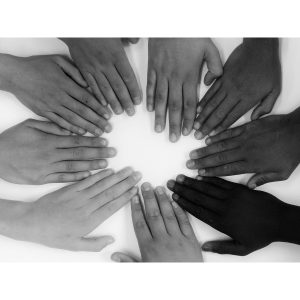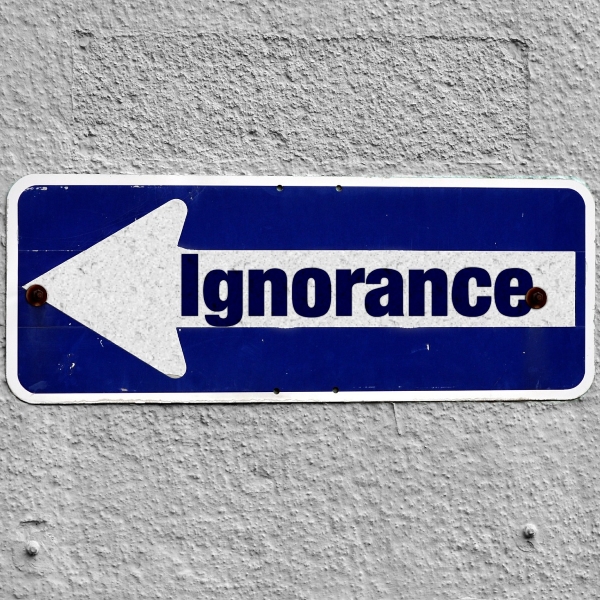-
Is Race Real? Get the Simple Living Rich Life Answer
“I don’t fancy colors of the face, I’m always attracted to colors of the brain.” ― Michael Bassey Johnson
Is race real? The simple answer is no, but keep reading. After all, who wants to be one of those people who jumps to conclusions without reading the whole article?
The basic genetic mechanisms controlling skin color are in effect the same as those controlling eye color, hair color, height or any other physical feature.
The beauty of these mechanisms is they are reliant on many individual genes. You might think of these genes as types of tools in your garage such as wrenches. Wrenches come in many different types: adjustable or fixed sizes, some open ended, others closed. Then there are hammers: sledge hammers, claw hammers, and ball peen hammers. The complexity created by these tools or genes allows each of us to appear as an individual. Even siblings have hundreds to thousands of changes between their genes. Yet, all humans remain >99.9% identical genetically. Chew on that for a minute. We are all pretty much the same, yet we are all individuals at the same time. This is pretty cool stuff. No wonder individuality is pivotal to our culture, religious beliefs, society, and civil liberties.
There is little room if any to draw clear lines to create what we call races in this complex system. Scientist work long hours to obtain what we call clean data. Small standard deviations, those tiny error bars on graphs; priceless. Trying to separate people into race groups produces broad fuzzy categories at best. In short, terrible science.
To counter, here is some outstanding science when it comes to race:
Deborah and Zakariyya were the children of Henrietta Lacks; a poor black woman who suffered incomprehensible pain and agony from cervical cancer. Scientists took Henrietta’s cancer cells without her consent, for research purposes. Those cells, known to scientist as HeLa, have been a cornerstone tool in molecular biology and cancer research ever since.
Yet, the family of Henrietta was left in a state of fog, never understanding or knowing what had happened to their mother and her cells. What were they? Was a part of her still alive? Was her soul still locked in those cells? Why did all the financial and medical benefit their mothers cells provided go to others, yet they had no medical insurance or money themselves? After decades of unanswered questions, Christoph, then a postdoctoral fellow provided some answers. He invited them to his laboratory to have their first ever look at their mothers cells.
If the only molecular biology anyone ever learned was what Christoph Langauer taught Deborah and Zakariyya Lacks the issues of race would disappear. Here is a snippet of their conversation as recorded in The Immortal Life of Henrietta Lacks by Rebecca Skloot:
“If those our mother’s cells,” he said (Zakariyya), “how come they ain’t black even though she was black?”
“Under the microscope, cells don’t have color,” Christoph told him. “They all look the same—they’re just clear until we put color on them with a dye. You can’t tell what color a person is from their cells.”
The young scientist ended the visit by presenting a picture of their mothers cells dyed with many different colors using a lab technique he had invented as a gift.
We would solve so many of our world’s problems if we only knew this to be true, “When you look close we are all the same; just clear.”
Is race real? The simple answer is no, not in terms of science.
Race, like beauty is only skin deep.
To lead simple rich lives is to live in light of this these truths.
So why do we still bother with race at all in science? In short, because until we can locate genetic differences that predispose us to disease and develop tests to determine what individuals have them, imprecise clues to heritage are the best predictive tool.
This is not the best example for many reasons, but it illustrates the point. Let’s say your child has a fever, and blood tests show she is anemic. If you checked the box besides “African” on the race question in your paperwork a doctor would be right in placing the possibility of Sickle Cell Anemia on her list of causes to investigate further. If however, you checked “White/Caucasian” the likelihood of Sickle Cell being the cause of your child’s symptoms is significantly lower.
This idea that heritage is predictive of disease would hold true for scores of other medical conditions. If however, we knew and could look at a person’s DNA for those genetic changes which cause disease rather than having the patient check a box related to some vague category of inheritance we would be well on our way to individualized medical care and a higher standard of excellence. Not to mention we could do away with those silly boxes on our paperwork and what a happy day that will be.
For now, this mythical pigeon holing of humanity continues to plague us.
Is race real? Yes, and the solution is simple, but not easy. The problems race has caused run deep and wide. We all know our cities, towns, places of employment, prisons and schools all reflect problems linked to race.
In watching the movie Hidden Figures, based on a true story of three black women working for NASA in the 1960’s, I could not help but wonder, “Where might we be today if we but recognized the scientific fact Christoph taught?” How many talents, ideas, and how much potential for good has been lost because we dismiss people because of the level of melanin their genes produce?
If only we could see, much like the countless tears shed over race, we are all just clear.
Then and only then will the answer to the question, “Is race real?” be a simple and an easy, “No.”
Like what you just read?
Subscribe to Simple living. Rich life.
or just go ahead and read more now from the Archive.



